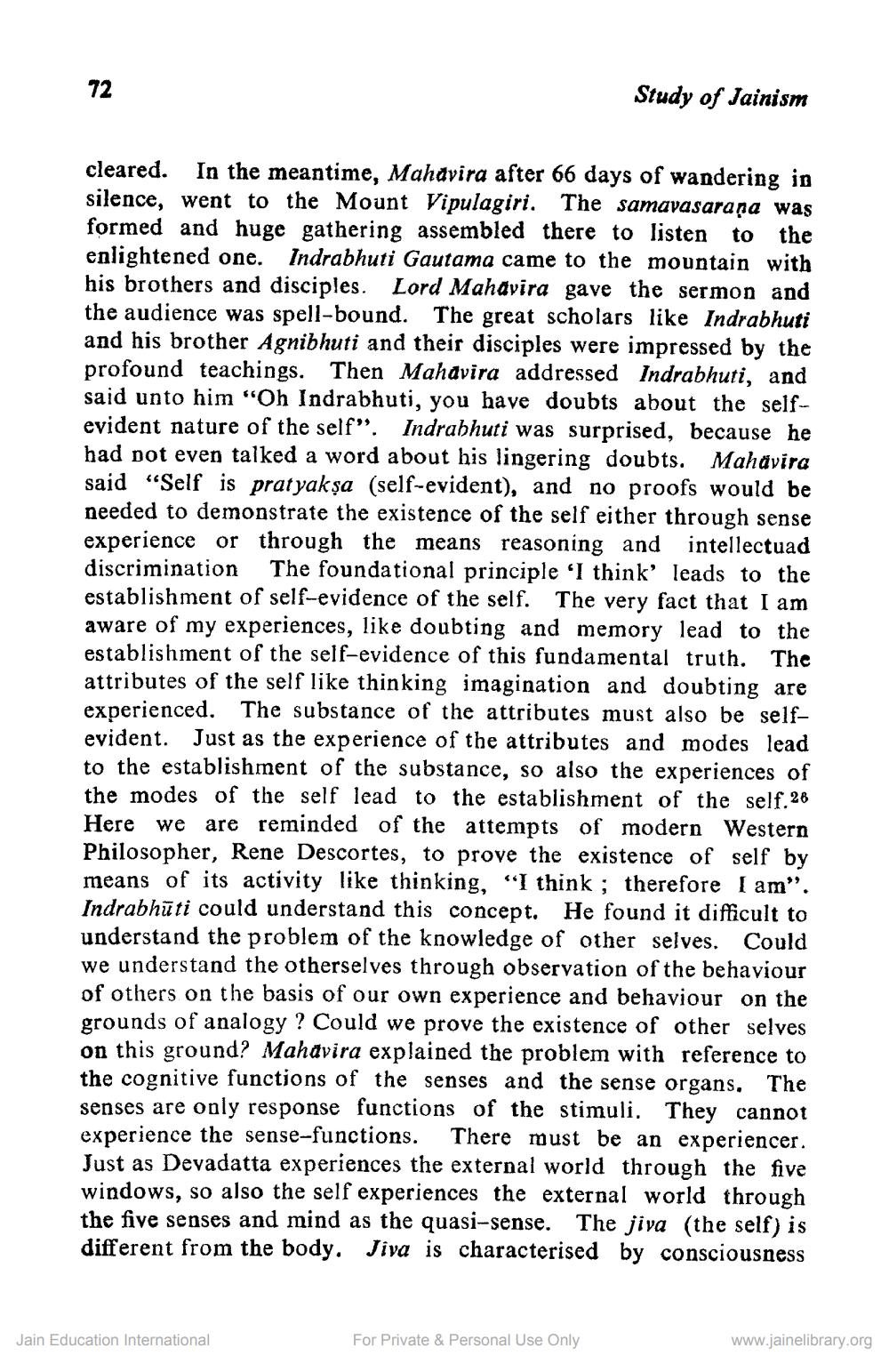________________
Study of Jainism
cleared. In the meantime, Mahavira after 66 days of wandering in silence, went to the Mount Vipulagiri. The samavasarana was formed and huge gathering assembled there to listen to the enlightened one. Indrabhuti Gautama came to the mountain with his brothers and disciples. Lord Mahavira gave the sermon and the audience was spell-bound. The great scholars like Indrabhuti and his brother Agnibhuti and their disciples were impressed by the profound teachings. Then Mahavira addressed Indrabhuti, and said unto him "Oh Indrabhuti, you have doubts about the selfevident nature of the self". Indrabhuti was surprised, because he had not even talked a word about his lingering doubts. Mahavira said “Self is pratyakşa (self-evident), and no proofs would be needed to demonstrate the existence of the self either through sense experience or through the means reasoning and intellectuad discrimination The foundational principle 'I think' leads to the establishment of self-evidence of the self. The very fact that I am aware of my experiences, like doubting and memory lead to the establishment of the self-evidence of this fundamental truth. The attributes of the self like thinking imagination and doubting are experienced. The substance of the attributes must also be selfevident. Just as the experience of the attributes and modes lead to the establishment of the substance, so also the experiences of the modes of the self lead to the establishment of the self.28 Here we are reminded of the attempts of modern Western Philosopher, Rene Descortes, to prove the existence of self by means of its activity like thinking, “I think ; therefore I am". Indrabhūti could understand this concept. He found it difficult to understand the problem of the knowledge of other selves. Could we understand the otherselves through observation of the behaviour of others on the basis of our own experience and behaviour on the grounds of analogy ? Could we prove the existence of other selves on this ground? Mahavira explained the problem with reference to the cognitive functions of the senses and the sense organs. The senses are only response functions of the stimuli, They cannot experience the sense-functions. There must be an experiencer. Just as Devadatta experiences the external world through the five windows, so also the self experiences the external world through the five senses and mind as the quasi-sense. The jiva (the self) is different from the body. Jiva is characterised by consciousness
Jain Education International
For Private & Personal Use Only
www.jainelibrary.org




